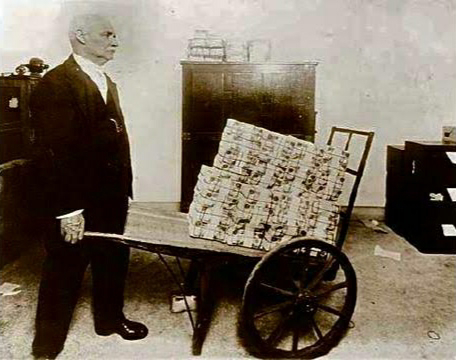Oppenheimer's Enigmatic Life
J. Robert Oppenheimer: The Enigmatic Life of the Father of the Atomic Bomb
J. Robert Oppenheimer, a name synonymous with the Manhattan Project and the development of the atomic bomb, was one of the most influential and enigmatic figures of the 20th century. Born on April 22, 1904, in New York City, he grew up in a privileged environment, with a family that fostered intellectual curiosity and academic excellence. His life's journey would take him from a precocious child fascinated with the natural world to becoming one of the key figures in shaping the course of history through science and technology.
**Early Years and Education:**
Oppenheimer's parents, Julius S. Oppenheimer and Ella Friedman, were German Jewish immigrants who owned a successful textile-importing business. Young Robert, known as "Oppie" to family and friends, displayed extraordinary intellectual abilities from an early age. He was reading and solving complex mathematical problems by the age of three and was fluent in multiple languages before entering high school.
In 1921, Oppenheimer enrolled at Harvard University, where he studied chemistry and later pursued a degree in physics. It was during his time at Harvard that he developed a deep interest in theoretical physics, studying under renowned physicist Percy Bridgman.
**The European Influence:**
After completing his undergraduate studies, Oppenheimer traveled to Europe to study at some of the finest institutions, including the University of Cambridge and the University of Göttingen. His experiences in Europe exposed him to the leading physicists of the time, such as Max Born, Niels Bohr, and Wolfgang Pauli, and deepened his understanding of quantum mechanics and other cutting-edge theories.
Oppenheimer returned to the United States in 1929 and earned his Ph.D. from the California Institute of Technology (Caltech) in theoretical physics. Over the next few years, he began establishing himself as a brilliant theoretical physicist and gained recognition for his work on quantum mechanics and quantum electrodynamics.
**World War II and the Manhattan Project:**
When World War II erupted, Oppenheimer's life took an unexpected turn. In 1942, he was appointed the scientific director of the Manhattan Project, a top-secret government research project with the goal of developing an atomic bomb. His leadership and vision were instrumental in bringing together the world's greatest scientific minds to work on this unprecedented task.
Under Oppenheimer's guidance, the team made significant progress, and on July 16, 1945, they successfully tested the first atomic bomb at the Trinity test site in New Mexico. The bomb's destructive power forever altered the course of history and ushered in the nuclear age.
**The Ambivalence of Success:**
While the success of the Manhattan Project brought Oppenheimer fame and accolades, it also left him emotionally and morally conflicted. Witnessing the devastation caused by the atomic bombs dropped on Hiroshima and Nagasaki in August 1945 deeply troubled him. He famously quoted the Bhagavad Gita, saying, "Now I am become Death, the destroyer of worlds."
As the Cold War intensified, Oppenheimer's political leanings and associations with left-wing intellectuals during the 1930s and 1940s attracted the attention of the United States government, which launched a security clearance investigation into his background. The inquiry culminated in 1954 when Oppenheimer's security clearance was revoked, citing concerns about his past associations and potential vulnerability to communist influence.
**Later Years and Legacy:**
After the Manhattan Project, Oppenheimer's scientific career took a backseat, but he continued to contribute to academia and served as the director of the Institute for Advanced Study in Princeton, New Jersey. Despite the setback of losing his security clearance, Oppenheimer remained active in the scientific community and continued to work on theoretical physics.
J. Robert Oppenheimer passed away on February 18, 1967, at the age of 62. His life left a profound impact on science, politics, and society. He is remembered not only for his pivotal role in the development of the atomic bomb but also for his contributions to theoretical physics and his dedication to education and research.
**Conclusion:**
The life of J. Robert Oppenheimer is a complex tapestry of scientific brilliance, moral dilemmas, and political controversies. His journey from a curious child to a towering figure of 20th-century science encapsulates the triumphs and tragedies of the era. While he will forever be remembered as the "father of the atomic bomb," his legacy also serves as a cautionary tale about the ethical implications of scientific advancements and the responsibilities of scientists in shaping the destiny of humanity. The story of Oppenheimer's life is a reminder that even the most brilliant minds are not immune to the consequences of their actions and choices.




Comments
Post a Comment